3 Problems When We Tie Our Identity to Our Work
Written by Andrew Laird, Australia
Andrew Laird works for City Bible Forum and is the National Manager of their Life@Work program which aims to help Christians connect their faith with their daily work. He is the author of two books about work, including Under Pressure: How the Gospel Helps Us Handle the Pressures of Work. He previously worked as a radio journalist and newsreader, and loves to tweet at @andrewwlaird.
What questions do you normally ask someone when you meet them for the first time? My guess is that after asking their name, one of the most likely questions you ask is, “What do you do for work?”.
But have you noticed how people often respond? Not by saying, “I work as a lawyer”, but “I am a lawyer”. We live in a world of “I am what I do”, where our identity is tied to our work.
This may seem like a small thing, but there are at least three problems with it–problems that can have devastating impacts on us.
What are those problems? And more importantly, what is the solution?
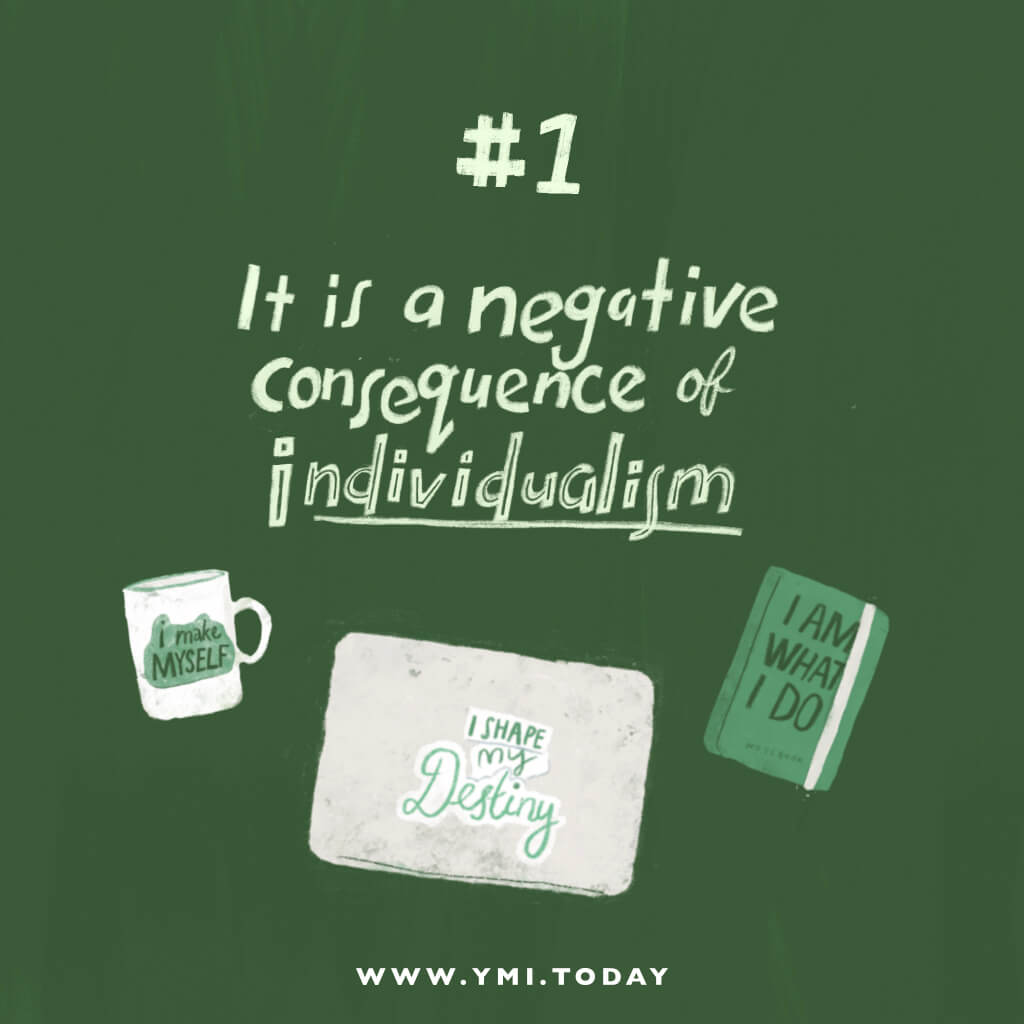
1. It is a negative consequence of individualism
The starting point is recognising that “I am what I do” is a distinctive hallmark of those cultures shaped by Western individualism.
One way of defining individualism is thinking of yourself, “as an end in yourself”.[1]Who I am begins and ends with me. I shape my destiny. I make myself. Whereas previous generations–and still many parts of the world today–define themselves in relation to their community. But in Western individualism, I shape my identity. My value and worth is determined by what I achieve and accomplish.
What does this mean for our work? It becomes a key source of our identity. Now this is great news if our work is going well for us. But when we inevitably suffer setbacks in our work, then having attached our value and our worth to our work becomes a crushing burden.
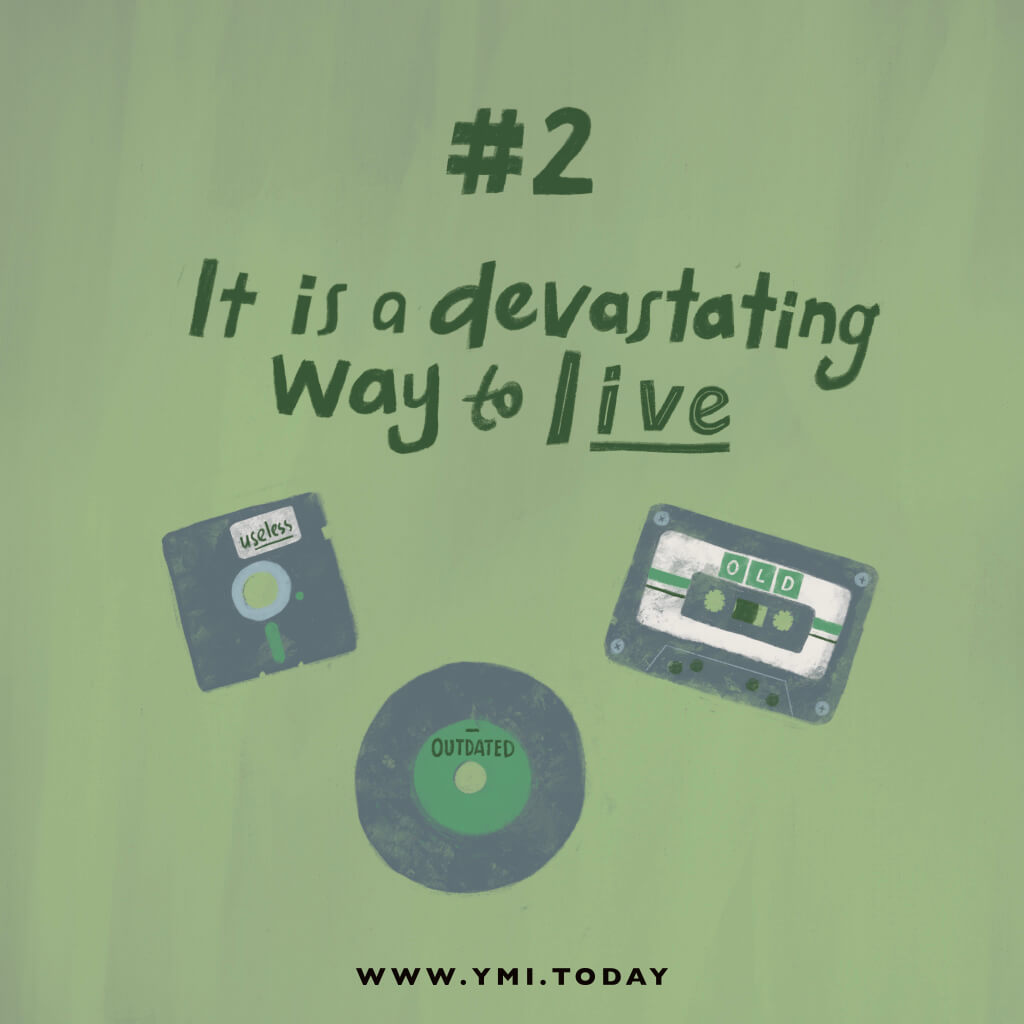
2. It is a devastating way to live
In his book Work: A History of How We Spend Our Time [2], James Suzman records the devastating story of archaeologist Professor Vere Gordon Childe who took his own life when he concluded that he had no “further useful contributions to make” to his field of work.
But Childe is not alone in this thinking. There is a tragic statistical connection between disappointment, perceived failure in work, retirement, and suicide. When work becomes the means of our value and worth, it’s crushing when it disappoints.
This burden we place ourselves under can reveal itself in other debilitating ways. I recall receiving an email from a woman who’d been sick for a while, which contained the words “I’m useless”. Because she couldn’t “do” what was required of her, she considered herself useless.
However, on the flipside if our work goes well, this only leads to pride. If I am “an end in myself”, then any success I enjoy is entirely my own. But of course, pride brings its own set of problems.
Timothy Keller summarises these two-pronged dangers of attaching our worth and value to our work perfectly: “When work is your identity, success goes to your head, and failure goes to your heart”.[3] “I am what I do” is ultimately a devastating way to live.
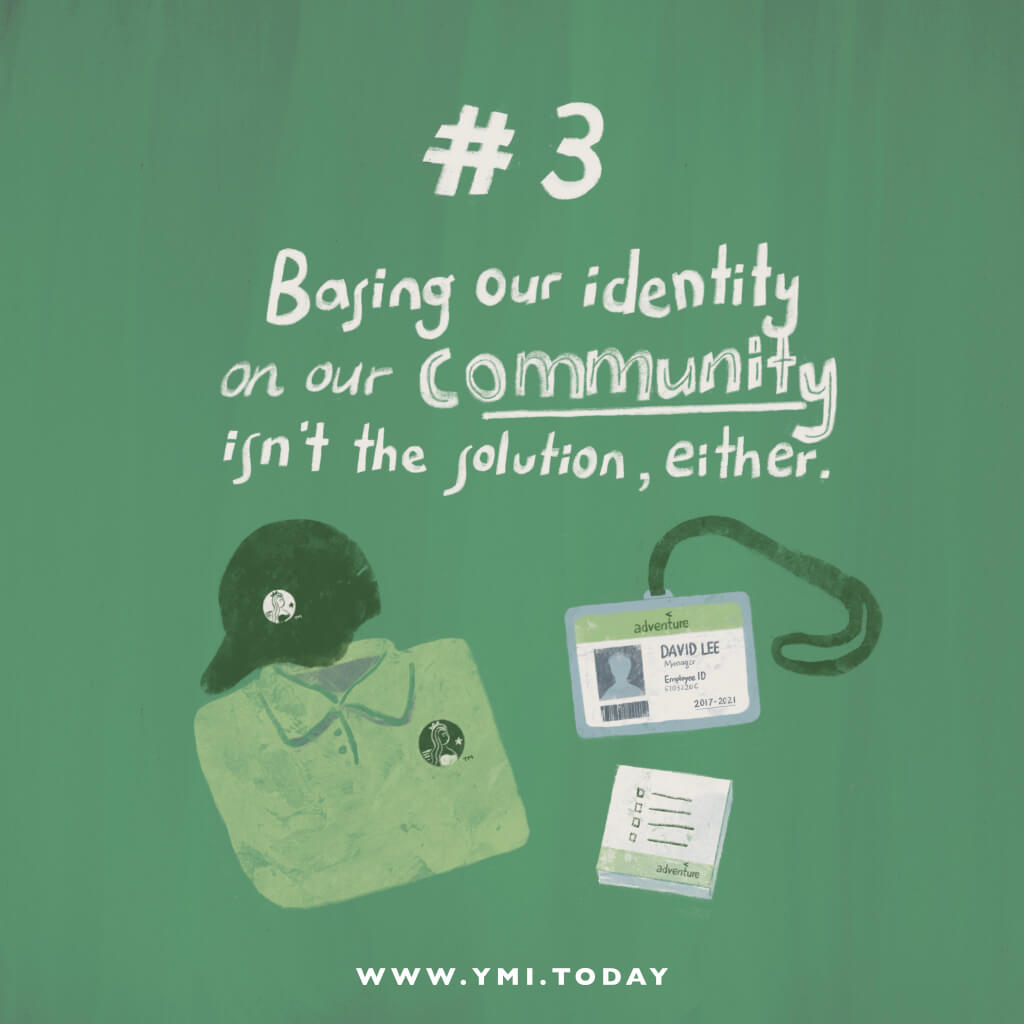
3. A more communal view of self is not the solution
However, we may think that if individualism is so destructive, perhaps having a more communal view of ourselves (where we base our identity more on the family or community that we are a part of) is the solution.
In his book, Selfie, Will Storr traces both the roots of both Western individualism and a more corporate identity, typically in Asian cultures. He summarises, “The Asian self melts at the edges into the selves that surround it”. So when it comes to work, it’s not uncommon to identify yourself in relation to your corporation. For example, Will meets a man in Japan who introduces himself not as “David”, but “Sony’s David”.
But this corporate identity is not the solution either. Suicide rates in South East Asia are devastatingly high. Why? In Asian cultures, if you fail the group then you are a failure. So Storr explains, “the idea is that by one individual taking his or her life, honour is restored [to the group] . . .a CEO taking their life makes sense to the Japanese”.[4]

Only Jesus is the answer!
So if neither Western individualism, nor a corporate view of self is the solution, where do we turn? Only the Gospel releases us from the burden of “I am what I do”! And it does this by starting not first with our identity, but the identity of Jesus.
One of the remarkable, foundational truths of the Christian faith is that those “in Christ” are somehow caught up in His identity; His status is our status, His righteousness is our righteousness. So understanding our identity starts with understanding His.
And what is key to His identity? As God the Father says of God the Son at His baptism, “This is my Son, whom I love; with him I am well pleased” (Matthew 3:17). When the Father looks upon the Son, His verdict is love and delight. And that is the same verdict He has of you, for those in Christ. Our achievements or accomplishments are not the source of our identity. Rather it is a status, an identity, that is conferred upon us, from Someone outside of us.[5]
Do you see the revolutionary change this brings to how you view yourself and your work? With a sure confidence of your identity in Christ, work is no longer the source of your identity, but the expression of it. Living out of the confidence of the love and pleasure of God, you no longer need to prove yourself to anyone, but rather express your new identity in Christ. This is the radical change the Gospel brings to our identity and our work.
So, what is one practical way that we can begin to challenge a false view of self and embrace the identity we have in Christ?
We can start by asking ourselves, “How do I respond when my work is criticised?”.
No criticism is nice, but the depth to which it affects us might suggest that we are finding something of our identity in our accomplishments, and not solely in Christ. If criticism cuts us up inside and leaves us feeling defeated, or criticism deeply angers us and makes us defensive, that might be a hint that we’ve tied our identity too closely to our work (because it is not simply our work being criticised, but us). Noticing how we respond to criticism of our work can be a litmus test about where we are finding our identity, and a moment to potentially stop and remind ourselves afresh of the glorious, fixed identity that we have in Christ: “This is my child whom I love; with them I am well pleased”.
[1] Luc Ferry, A brief history of thoughts, 122
[2] James Suzman, A Work History on How We Spend Our time, 177, You can explore more about this story and how Childe is tragically not alone in this thinking in the course I Am What I Do? A Theology of Work and Personal Identity.
[3] twitter.com/timkellernyc/status/510539614818680832
[4] Will Store, How the West Become Self-Obsessed, 81
[5] Again, I unpack this glorious truth in much more detail in the course, I Am What I Do? A Theology of Work and Personal Identity, plus the practical, and liberating implications of this for our daily work.
[geot country=”Australia”]The above is adapted from Andrew Laird’s I am what I do? A theology of work and personal identity. If you would like to sign-up for the full 6-course lessons, click here to learn more.[/geot]
[geot country=”New Zealand”]The above is adapted from Andrew Laird’s I am what I do? A theology of work and personal identity. If you would like to sign-up for the full 6-course lessons, click here to learn more.[/geot]






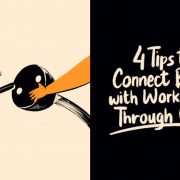

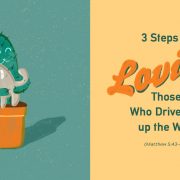



Leave a Reply
Want to join the discussion?Feel free to contribute!